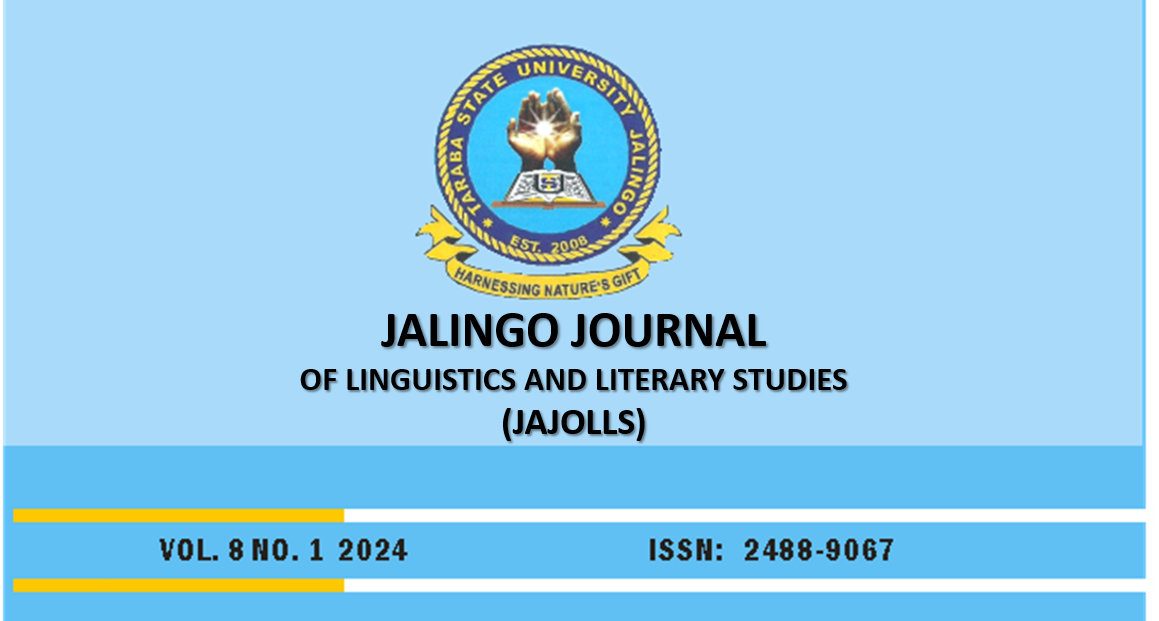Phonological analysis of Nigerian English: Spoken English experiences with selected speakers from the three major Nigerian languages
Keywords:
Nigerian English, Phonology, Segmental, Supra-segmentalAbstract
Phonological classifications of Nigerian English have been a subject of interest among researchers due to the unique sociolinguistic effects it produces. Based on this, the aims of this work are: to do an examination of the segmental features of Nigerian English from the three major indigenous language speakers, to do an examination of the supra-segmental features of Nigerian English from the three major indigenous language speakers and to check for the differences between Nigerian English and British English as noticed in the first-hand experiences with selected Nigerian English users. By the use of purposive sampling technique, educated speakers of the English language from the three major Nigerian languages, comprising males and females of different age limits were interviewed with two extracts. Categories of the speakers tested also varies (ranging from school certificate holders, OND/NCE holders, HND/First degree holders and Postgraduate degree holders) among the three major ethnic groups in the country (Hausa, Igbo and Yoruba) respectively. It was discovered at segmental phonological examination that the sound quality of Nigerian English speakers vary according to their regions; for instance, only Hausa speakers of Nigerian English have v. good grade in syllabic consonant as seen in
number nine sample - Beetle /'bi:tl/, as they are the best Nigerian pronouncers of the syllabic consonant [tl] out of the three tribes tested. At supra-segmental level, it was found that only the intonation patterns of the Nigerian English speakers record 30% of correctness while their stress patterns and their articulation of phonological processes record 0% apeice, which nullifies division of the tone groups into foot in the data. In conclusion, despite the fact that linguistic scholars and Nigerian ethnographers have taken cognizance of the phonological as well as the sociolinguistic and grammatical states of Nigerian English, there still exists variation within variation in Nigerian English which is one of the main reasons the quest for Standard Nigerian English will continue to attract researchers into the linguistic discipline.

